Gracie Gold Doesn’t Want to Be Your Golden Girl
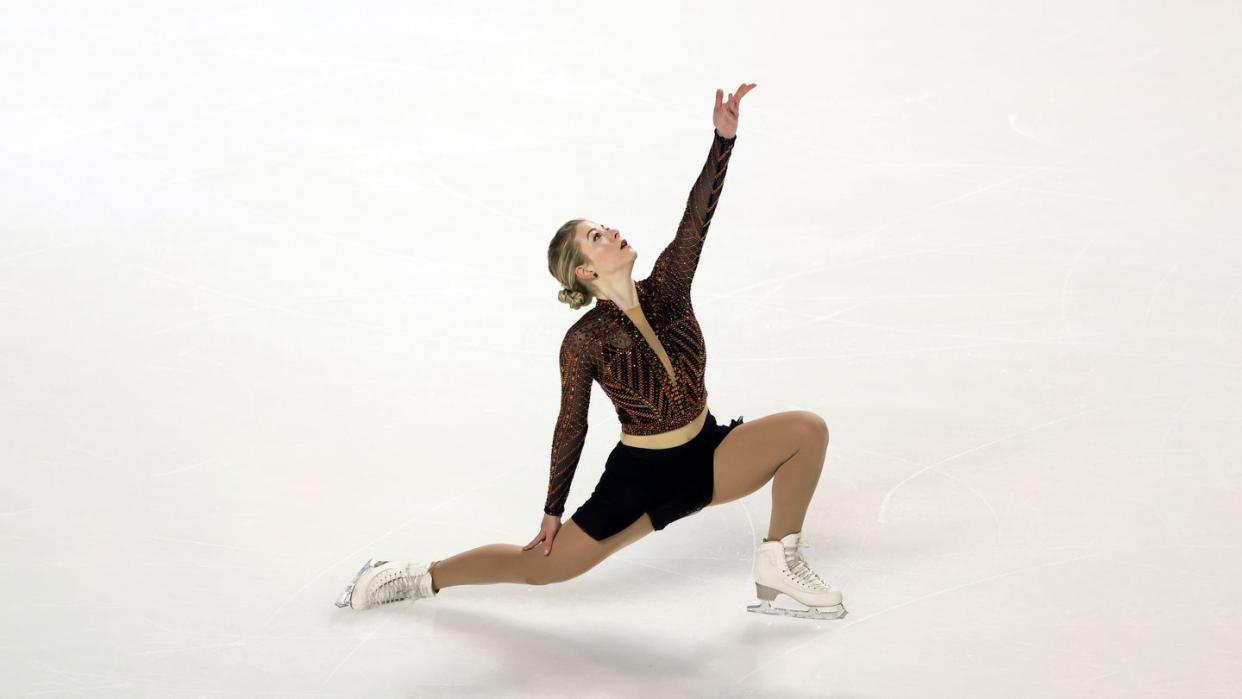
- Oops!Something went wrong.Please try again later.
- Oops!Something went wrong.Please try again later.
- Oops!Something went wrong.Please try again later.
- Oops!Something went wrong.Please try again later.
- Oops!Something went wrong.Please try again later.
- Oops!Something went wrong.Please try again later.
"Hearst Magazines and Yahoo may earn commission or revenue on some items through these links."
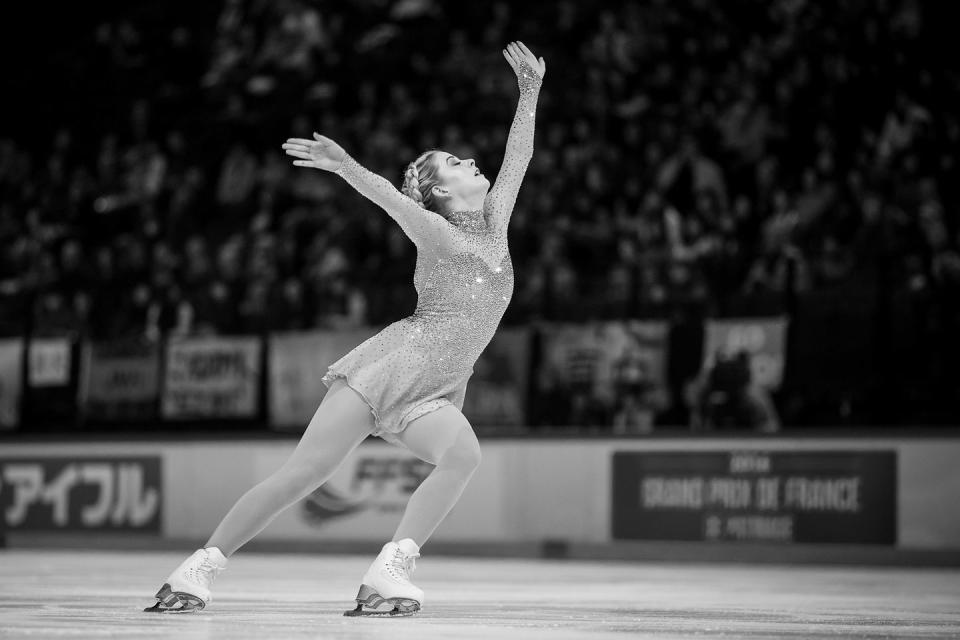
Ten years ago, I was so popular that Taylor Swift tweeted about me. (My 2024 self still can’t believe I don’t have that backward). Fresh off of winning my first national title, I was making my big Olympic debut at the Sochi Winter Games and Taylor, queen of my pre-competition playlist, posted to her timeline: “Just googling when I can watch @GraceEGold skate in the Olympics next… How adorable and lovely is she?!”
And Taylor wasn’t the only one to take notice of my success on the ice. My name was easy fodder for sports writers. The headlines read:
All That Glitters Is Gracie Gold.
America’s Golden Girl.
Good as Gold.
Leading the Gold Rush.
A New Gold Standard.
Worth Her Weight In Gold.
If my ascent to the Olympics was treated as a coronation, there was good reason for it. After decades of dominating the world stage, U.S. ladies’ figure skating was in a rut. By the time I skated onto the scene, 12 years had passed since Sarah Hughes won an Olympic gold in ladies’ singles. Before Sarah, the likes of Peggy Fleming, Dorothy Hamill, and Tara Lipinski had all used the Olympics as a springboard to celebrity, turning figure skating into a reliable Winter Olympics juggernaut. Notice I left out Michelle Kwan. She was my childhood idol. For a decade, Michelle was literally the best skater on the planet except for one week every four years. Her failure to win an Olympic gold medal was enough for some people to cast her amazing career in a critical light, which I duly took note of. It absolutely increased the pressure I felt to succeed when it mattered the most.
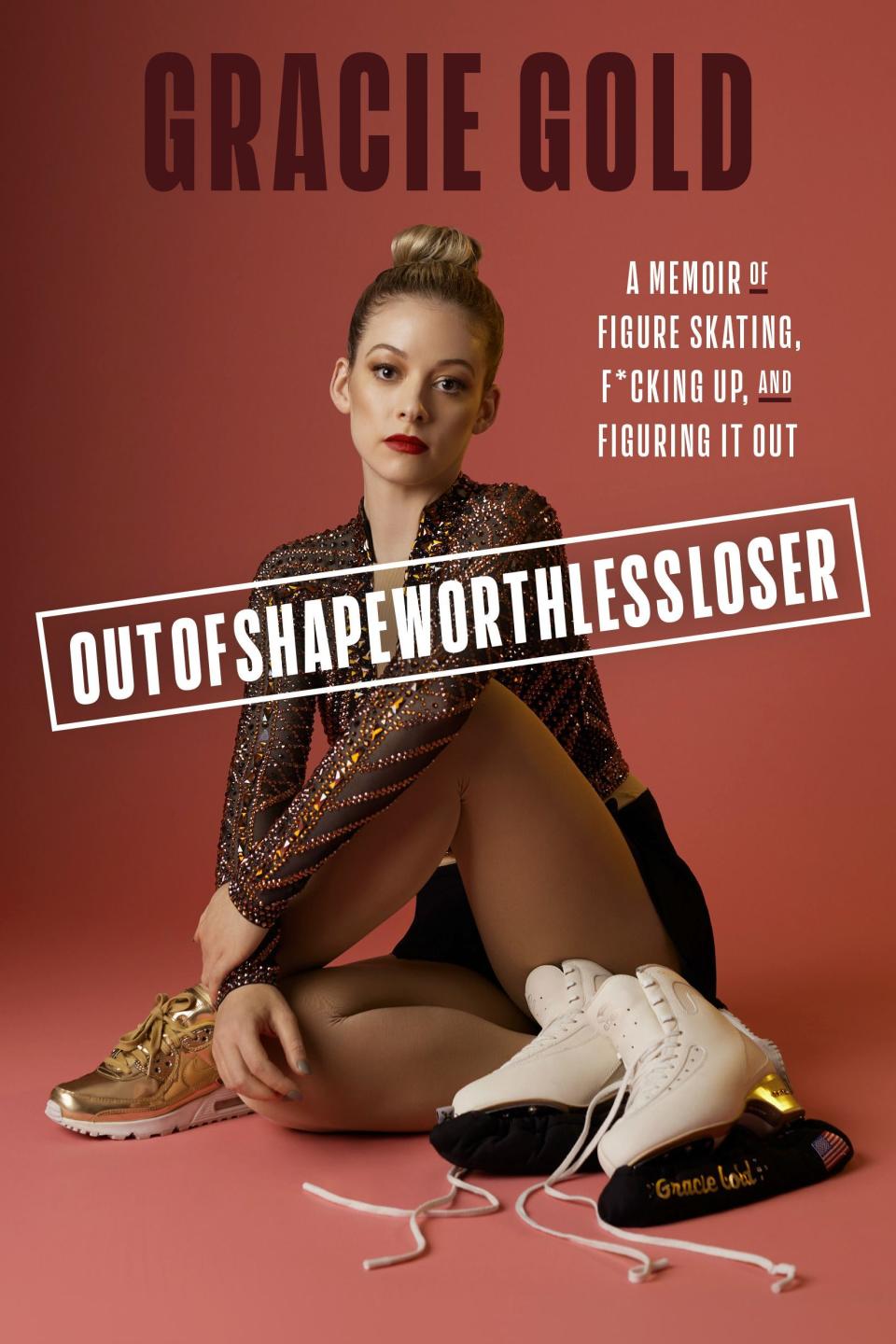
Outofshapeworthlessloser: A Memoir of Figure Skating, F*cking Up, and Figuring It Out
bookshop.org
$26.96
As I prepared to take the ice in Sochi, U.S. figure skating was facing an existential crisis: If American women couldn’t make the podium, did the sport even matter? And if it didn’t matter, why should any little girl ever try it again? Everyone gushed about how I was the total package—how I could help turn around the sport with my athleticism, good looks, and made-for-the-marquee name. My coach, Frank Carroll, looked at me and saw Grace Kelly, a comparison that became impossible to shake once it reached the media. I failed to see the resemblance. But then again, when I looked in the mirror I didn’t see a poised 18-year-old ready to wow the world. Instead, I saw a girl I called “Outofshapeworthlessloser.”
My self-loathing was rooted in my perfectionism, fertilized by a coach’s off-the-cuff comment in 2013 that I looked fat. At the time, I was carrying 124 pounds on my 5-foot-6 frame, and killing it in my first year of senior-level international competition. Determined to dazzle him with my discipline, I turned dieting into another competition and set out to become the best at it. I was repulsed for a long time by what I saw as a shameful lack of willpower, which made me feel like a failure for not surviving on only one tomato or apple a day.
It seemed obvious to me that I had to keep this flawed, pathetic excuse for a human hidden from view. Who would have any sympathy for Outofshapeworthlessloser? On the surface, I appeared to have it all. My parents came across as casserole-loving, God-fearing, family-focused pillars of our Midwestern community. The truth was messier. I learned at an early age, from observing them, the importance of projecting a palatable image. As the 2014 Olympics approached, the pressure of keeping up that act became untenable.
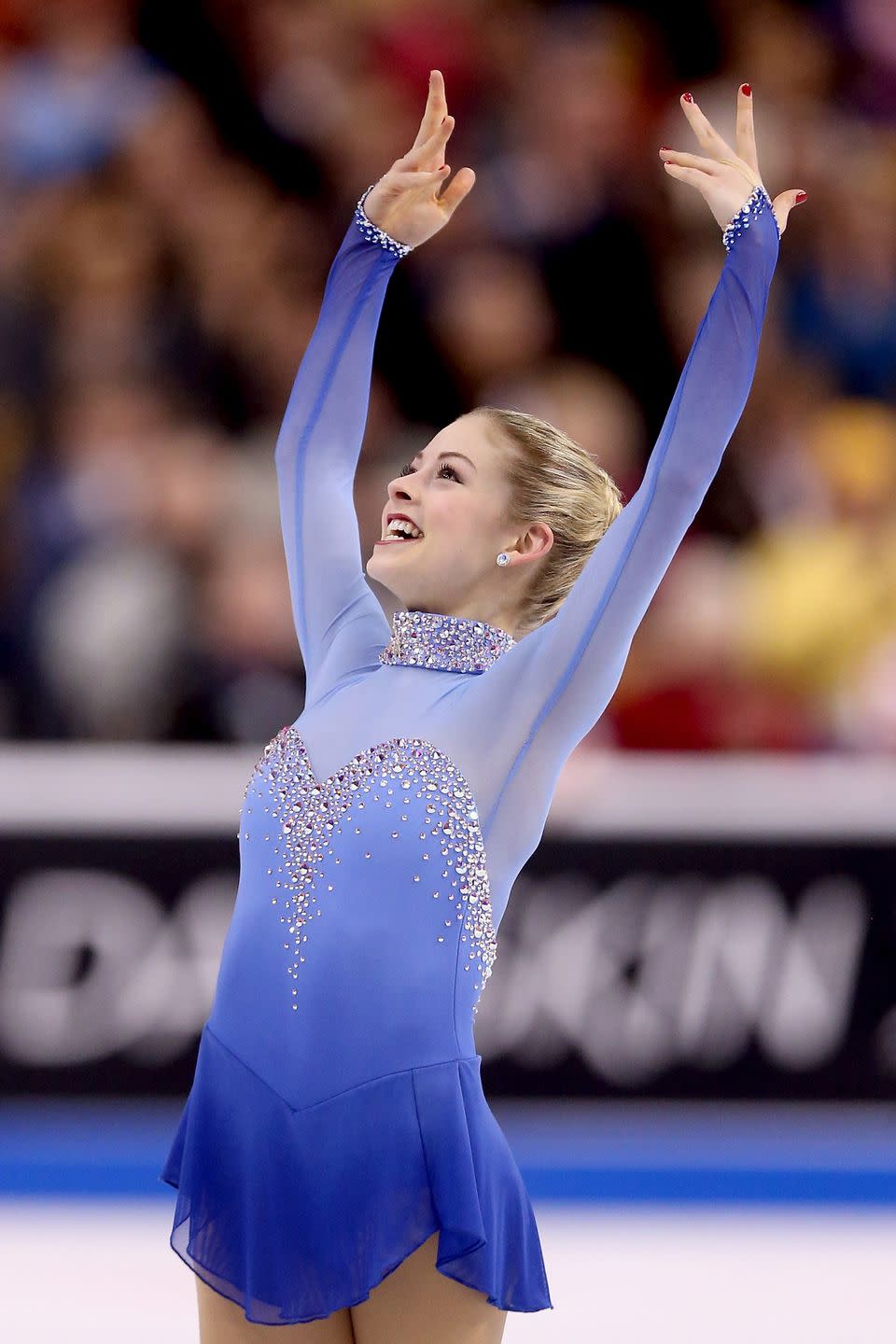
In Sochi, I earned a bronze medal in the team event and finished fourth, one spot off the podium, in the ladies’ singles. While part of me felt like a failure for not winning—and how could I not, with all of those headlines?—I told myself that I had four years to turn that fourth place finish into a gold medal at the 2018 Olympics in Pyeongchang, South Korea. Those Games would be my time to shine. Everybody said so. But having one foot in the Olympics that were behind me and the other in the Olympics ahead of me was a tough balancing act. It was destabilizing.
I had achieved my dream of becoming an Olympian, and I had this wild idea that from now on my life would be straight out of a storybook. However, it had never occurred to me becoming an Olympian might make my existing problems worse—and even create a few new ones. Much, much later I would happen upon a quote attributed to Grace Kelly that gave me reason to believe we did, in fact, have something in common: “The idea of my life as a fairytale is itself a fairytale.”
The years after Sochi were when my storybook life unraveled, a downward spiral that accelerated after I won a second national title in 2016—only to bomb in my long program at the World Championships weeks later. Among my challenges, I became a victim of sexual assault, battled mental illness, and contemplated ending my life because the pain of carrying on was so excruciating. It was a heart-in-the-throat ride that took me from coast to coast in search of different environments I hoped would provide an instant cure for everything that was making me so miserable. But no matter where I relocated to, there was no escaping Outofshapeworthlessloser. Every time I unpacked my full-length mirror, there she was, staring back at me with utter disgust.
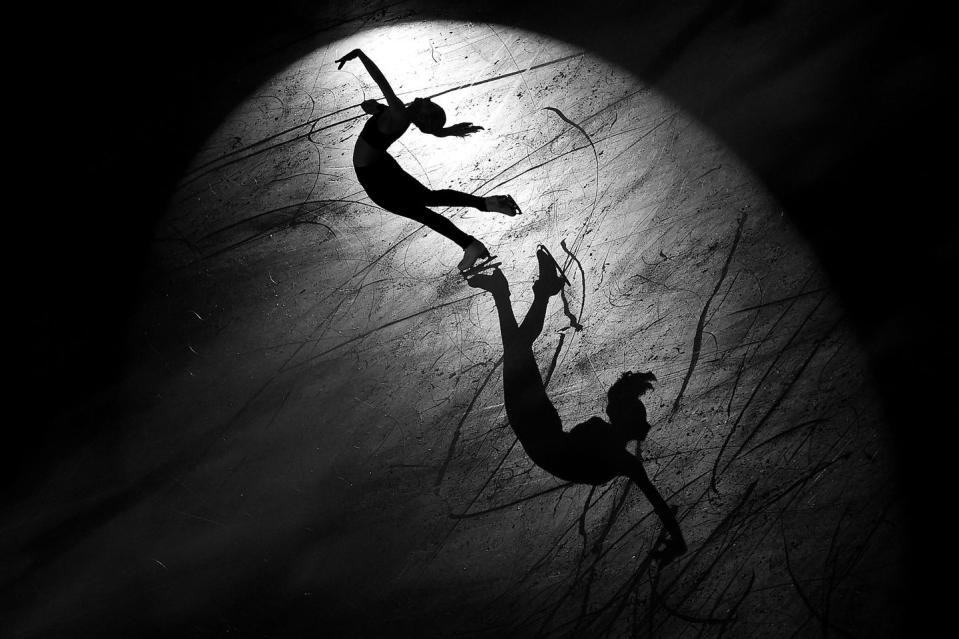
In 2017, I crashed and had what I half-jokingly refer to as my “quarter-life crisis.” I gained more than 50 pounds and had a meltdown at a national training camp in front of skating officials who saw me as a petulant child, rather than a woman in the throes of a full-blown mental health crisis. I had two choices: go to the 2018 Olympics, or save my life.
I made the difficult decision to enter a recovery center and give up my dreams of winning a gold medal. If I wanted to stay alive, I had to get rid of Outofshapeworthlessloser.
When I entered intensive counseling, I thought that attending to my poor mental health would be like addressing an imperfect skating program. I’d replay my life until I arrived at the moment I started counting calories—that I would be able to pinpoint the precise day when my fraught relationship with the food I needed to survive stripped skating of the joy it had once given me. I’d make the necessary adjustments, just like I did when I’d tweak my timing or posture on a failed jump. Then, moving forward, the program would be perfect.
The reality was a lot more complicated. As I confronted my traumas, both big and small, what became obvious to me was that the same factors that had contributed largely to my downfall had also figured greatly in my success. I couldn’t bemoan my perfectionism without also acknowledging that it drove me to become a champion skater. I couldn’t unpack my family dysfunction without also recognizing how those dynamics drove me to the refuge that figure skating provided. And I couldn’t criticize the value system of Olympic sports in America, which prioritizes performance over the person, without also admitting that I had always believed that the gold-plated ends justified the means.
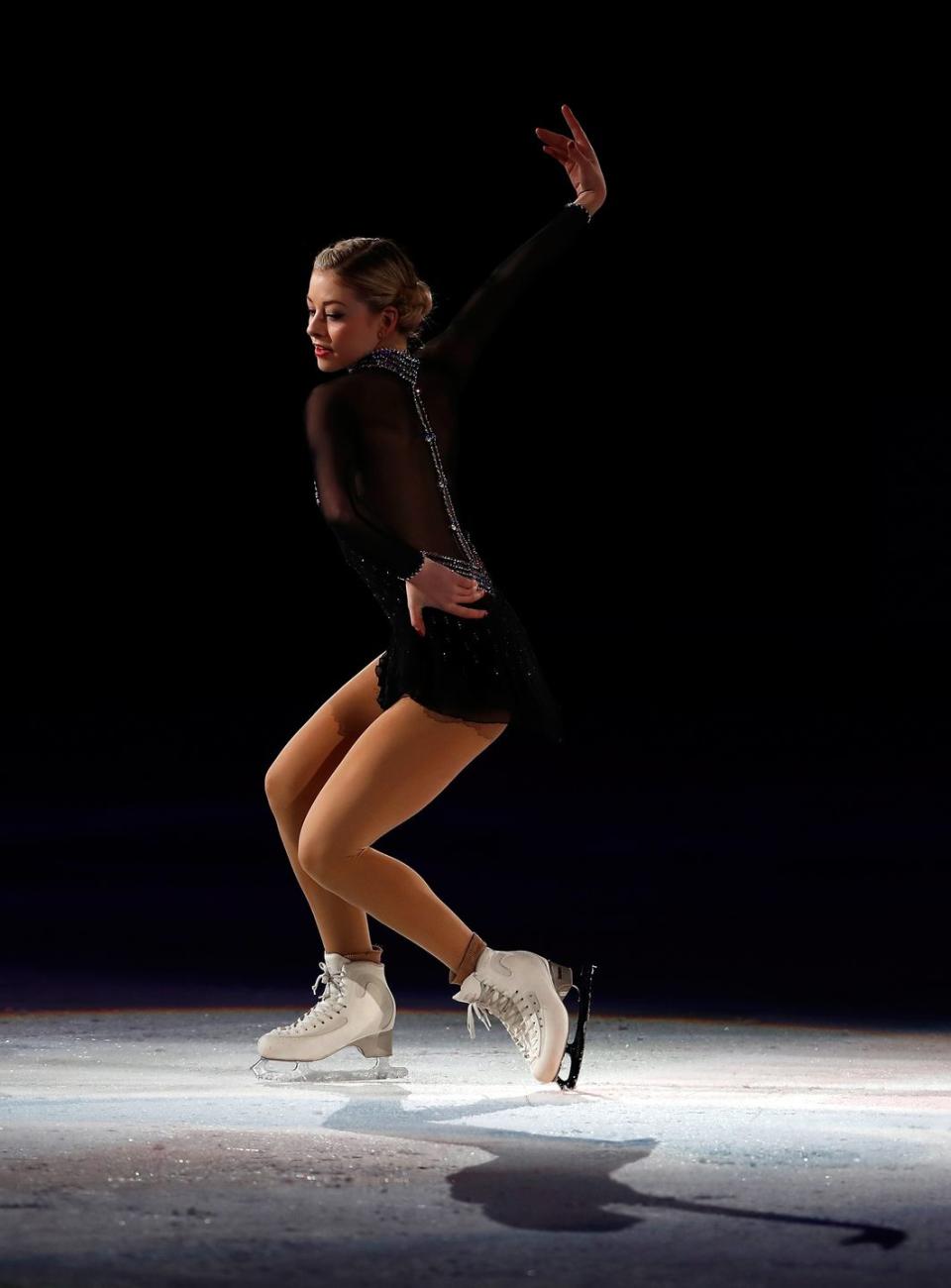
I emerged from recovery and decided to return to competitive skating. This time on my own terms, and on my own timetable. I was curious to see if I could become a champion skater again without the expense of my health. In 2022, I skated well enough to receive standing ovations for my short program at nationals and gain a couple of international assignments, which was thrilling. But these days, I’m deriving more pleasure from coaching. I work with skaters of all ages. My purpose, as I see it, is to teach my students spins and jumps, but also to help them shed whatever masks they’re wearing because they want to be loved or accepted.
As for the next 10 years? I don’t know where I’ll be. I’ve given up making five- and 10-year plans, because nothing has ever turned out how I expected it to. Sometimes, I look back and wonder: Was that real or just a really intense fever dream? I do know that I’d like to remain involved in skating in some capacity, whether it’s as a competitor, coach, commentator, or in some administrative role. And above all else, I’ll remain committed to healing the various broken parts of me—to being a more stable athlete and person and to quiet that Outofshapeworthlessloser voice.
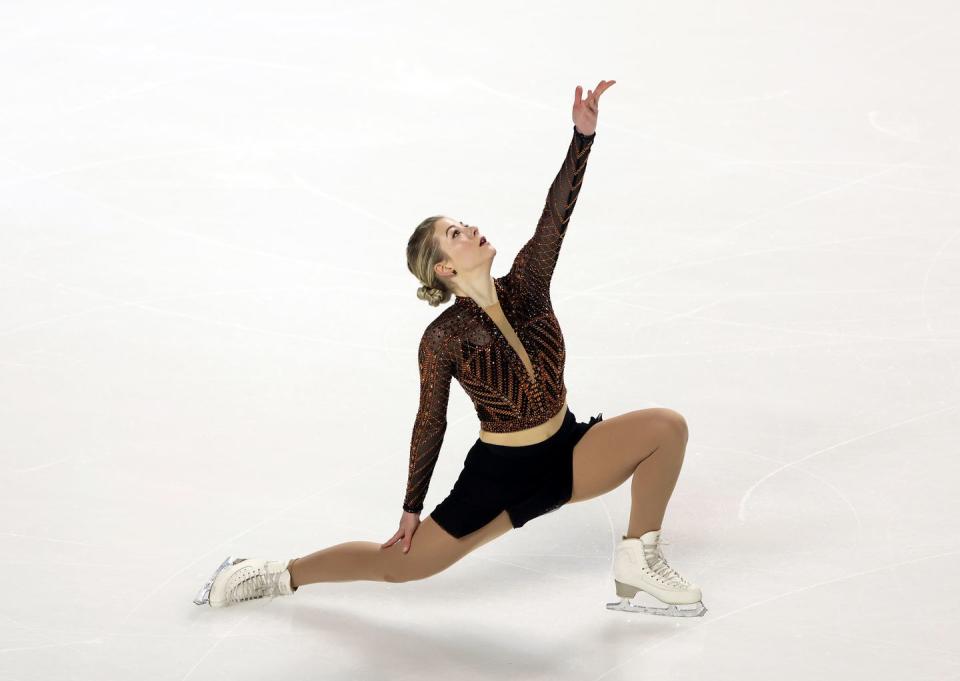
In doing so, I want to advocate for better mental health management for athletes and continue having the hard conversations that my story has started. When I decided to write my memoir, I initially wanted to title it Failed Anorexic. Then I reconsidered. Not everybody has body issues. But who among us hasn’t battled a voice that tells us we’re not enough? So, hello, to my book: Outofshapeworthlessloser. If my story can help one reader feel truly seen, I’ll consider it a success.
I breathed life into my Outofshapeworthlessloser persona when I covered up the eccentricities and feelings and behaviors that make me, me. Accepting that I’m worthy of love and respect and acceptance just the way I am has been a dagger to Outofshapeworthlessloser’s black heart. Bye girl. I can’t say I miss her at all.
You Might Also Like

